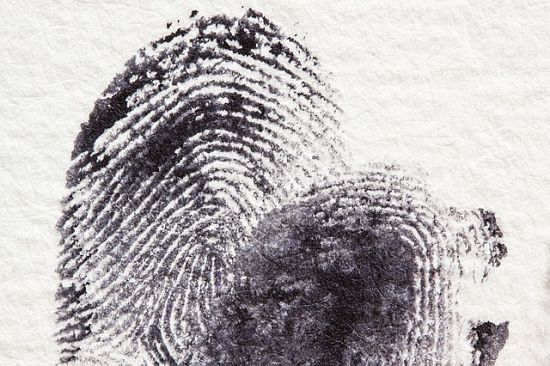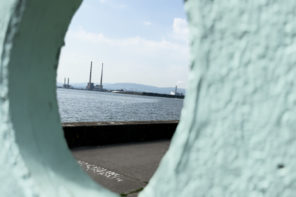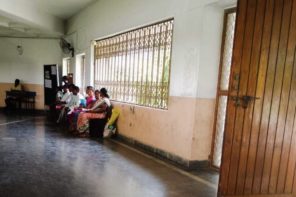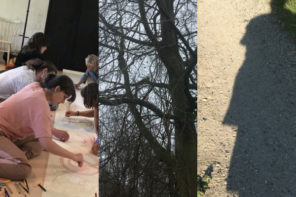How do we decide whether or not to accept the evidence of our senses, or to put our faith in the statements of others? These are questions we all face constantly in our daily lives, but they take on particularly focused form in academic and practical disciplines dedicated to making systematic sense of the world around us, such as – in somewhat different ways – law and anthropology.
There are several reasons why anthropologists need to become more interested in the topic of evidence (Engelke 2009). First, in the context of our own intra-disciplinary debates, we need greater clarity about the standards by which we judge arguments based upon ethnographic evidence. Above all, how do we anthropologists convince ourselves – and then set about convincing other anthropologists – that we are ‘right’ (Hastrup 2004: 458)? Second, if we aspire to a practical or public role for our anthropology, we need a far more developed language of evidence at our disposal, to allow us to engage with experts in other fields by demonstrating more clearly how we know what we claim to know.
One possible way forward in developing such a language is to look at how ‘evidence’ is treated in law, a discipline for which the notion is absolutely central.
Insofar as “evidence”, according to the Oxford English Dictionary definition, entails the quality of being evident, anthropological findings rarely if ever fully achieve that status. But the OED also defines evidence as ‘information, whether in the form of personal testimony, the language of documents, or the production of material objects, that is given in a legal investigation to establish the fact or point in question’. Though explicitly oriented towards legal contexts, this particular definition seems applicable to anthropology too, both in terms of the kinds of information referred to and – more fundamentally – in linking evidence to specific problems or issues. Testimonies, documents, and material objects do not in themselves intrinsically constitute evidence, but only take on that character in relation to a particular set of questions.
But although the kinds of information drawn upon in law and social science are the same, the two disciplines treat them in markedly different ways (Kandel 1992).
Thus, whereas lawyers are concerned with locating liability, and so assess actions normatively in order to punish the guilty or compensate the injured, social scientists seek to explain them in more general terms, as aspects of local culture and practice. In other words, the two professions use evidence for different purposes: as Twining neatly puts it: ‘judges have a duty to decide… scientists and historians mainly conclude’ (2006: 253; italics added).
The means of processing that evidence are also different – though there is a degree of overlap in practice, because neither discipline is rigidly bounded by the limits of the logical strategies that most characterise it. Whereas legal reasoning is predominantly deductive, and typically works through syllogisms – (i) in general, if p then q; (ii) in the present case, p; (iii) therefore, q (MacCormick 1994: 21–32) – social science reasoning is usually inductive, and makes extensive use of analogy and dialectic. The two disciplines also have very different understandings of ‘facts’ and ‘truth’. Lawyers speak of ‘facts’ in order to distinguish them from ‘laws’ rather than to make claims about their ontological status: a ‘fact’ is something that can be decided by a lay person without knowledge of the law. Moreover, the convention in common law is that any matters judged to have been established to the required standard of proof are thereafter treated as facts, as being certain. The legal attitude to ‘truth’ is equally pragmatic: ‘truth’ is the evidence provided by a witness who has been deemed to be credible. Anthropologists, by contrast – all too aware of the problems in obtaining and ordering their fieldwork data – are disinclined to speak of ‘facts’ or ‘truth’ without hedging qualifications.
When anthropologists are called upon as ‘experts’ in legal procedures, this is generally in order to provide evidence on ‘cultural’ matters. In British courts, for example, the commonest context in which anthropological evidence is sought is that of asylum appeals. After all, according to the 1951 United Nations Convention Relating to the Status of Refugees, a refugee is someone suffering from a ‘well-founded fear of being persecuted’ for reasons that seem central to their “culture”, namely, their ‘race, religion, nationality, membership of a particular social group or political opinion’. Indeed, the Convention requires that the claims of would-be refugees be evaluated with reference to their cultural, socio-economic, and historical contexts.
Even so, culturally grounded misunderstandings are common in asylum hearings because of the highly varied backgrounds from which asylum applicants come (Kalin 1986). These misunderstandings often concern fairly straightforward aspects of cultural difference: inconsistent transliterations of personal names from languages with non-Roman scripts; anomalies over dates, resulting from conversion from non-Gregorian calendars; variations in the structures of kin relationship terminologies; different systems for naming parts of the body; or different classifications of illnesses and diseases. Such misunderstandings can – in principle – be easily overcome by making the court aware of how and why the confusion arose. Far more troublesome, though, are suggestions that certain acts that seem odd or unlikely to legal decision-makers are explicable in terms of the actors following the dictates of their own “traditions” or “cultures”. Anthropologists may then find themselves being asked to explain, or explain away, culturally specific differences in behaviour.
Such legal demands – which teleologise culture by offering it as the alleged cause of delinquency or the motivating factor in generating persecution – pose a whole set of epistemological and professional dilemmas for anthropologists (Good 2009).
There is a moral dimension to this, too, of course. Judges and advocates are largely unaware of the ethical dilemmas posed for anthropologists from one culture, especially a hegemonic one, when required to speak for people from another.
In legal contexts there are seemingly intractable practical and ethical difficulties associated with ‘communicating “culture” (and its social consequences) without reproducing essentialist representations’ (Schwandner-Sievers 2006: 224). Does the anthropologist expert witness tacitly accept the lawyer’s premise that culture itself is the explanation for strange or seemingly non-credible behaviour, thereby contributing to ‘the reification of these contexts by articulating them within the constraints of … legalism’ (Hepner 2003); or try to explain the fluid, optative and processual character of culture, and thereby raise doubts as to the validity of the appellant’s motives? This dilemma also arises in the context of the ‘cultural defense’ – a mitigation strategy especially common in the USA, whereby defence attorneys seek to obtain lighter sentences for clients from minority or immigrant backgrounds by arguing that they had acted according to the dictates of their culture. Anthropologists may then be asked to testify as to the ‘authenticity’ (Renteln 2004: 207) of the cultural beliefs in question, that is, on whether the stated motives of the accused do indeed correspond with views widely held by their cultural peers (Van Broeck 2001: 24).
This legal resort to cultural essentialism places social science expert witnesses in a further quandary, because not even Talcott Parsons, who did so much to make ‘culture’ the central trope of mid-twentieth century American anthropology, believed that culture determined people’s actions.
Most contemporary anthropologists on both sides of the Atlantic probably agree with Gerd Baumann that culture ‘does not cause behaviour, but summarizes an abstraction from it, and is thus neither normative nor predictive’ (1996: 11; italics added).
In asylum cases too, advocates routinely seek to conceal the optative and contested nature of their clients’ cultural practices, which they see as fatally weakening claims dependent upon persecution resulting from such practices (Akram 2000; McKinley 1997). For example, I am often asked, in my role as ‘country expert’ in asylum appeals, to comment on aspects of Sri Lankan Tamil kinship, because the asylum seeker’s claim depends in part upon their fear of persecution arising from their violation of some core kinship norm, such as their marriage across caste or religious lines, or their coming out as gay or lesbian. But of course it does not follow that any such violation, however serious, automatically results in persecution. Sri Lankan families, like families everywhere, vary greatly in their responses to the socially deviant behaviour of their children and although this behaviour may also incur wider public censure, this is by no means always persecutory in nature. The most one can say is that such behaviour makes social disapproval, and possible persecution, more likely.
Even in the ‘hard’ physical sciences knowledge is socially constructed, at least to the extent that experimental results, and the conclusions to be drawn from them, must be validated by one’s peers. Indeed, the standard tests enunciated by the US Supreme Court for determining the admissibility of expert evidence – the original Frye test and the later Daubert test – rest in whole or part, respectively, upon the general acceptance, within the relevant professional community, of the methodology whereby that evidence was generated.
Consequently, in litigation involving competing experts called by either side, there is ‘not so much a contest between “true” and “false” beliefs as a test of the strength and unanimity of the prevailing consensus’ (Jasanoff 1996: 100).
This is as true of the evidence of engineers or medical researchers as it is of the evidence of anthropologists.
Some have argued that admissibility tests of this kind should be fairly unproblematic for anthropologists, given the general acceptance within the profession of the method of participant observation. That seems unduly optimistic, though, for several reasons. First, how clear are we about what precisely participant observation entails? What, if anything, serves to differentiate it from the ad hoc observations that we all routinely and necessarily make in our daily lives? Moreover, the current Daubert admissibility test in the USA depends heavily on Popperian criteria of falsifiability; how – if at all – can the findings of participant observation be defended in such terms?
What is more, social scientific evidence raises distinctive problems of its own, revolving especially around its inter-subjectivity.
Particularly complex problems are raised by the fact that anthropologists’ analyses derive largely from their own experiences as recorded in their field notes. In the 2007 Country Guidance case LP (Sri Lanka), for which I was one of the experts submitting written and oral evidence, the Home Office’s lawyers were anxious to neutralise the expert evidence of the British security specialist Dr Chris Smith, who had drawn important conclusions from his interviews with the Sri Lankan Inspector General of Police and other senior officials. In written submissions to the court, the Home Office argued that ‘it is important that the tribunal is provided with the factual material upon which that opinion is based, in order to conduct its own assessment of the conclusions to be drawn from it’. During the actual hearing, the Home Office barrister went further, arguing that Dr Smith’s evidence should not be accepted unless he also provided the interview notes he had made at the time.
As the other expert seated in court, I was all too aware of the problems such a pre-condition would pose for me too. Had the court demanded access to my notes I would have refused on grounds of professional ethics, though it was unclear to me what the legal consequences of such a refusal would be. Luckily the situation never arose, because the judges rejected this demand in the case of Dr Smith, commenting that ‘in this jurisdiction experts are not merely the providers of raw data but they can be the interpreters of it as well’.
The problems that might have arisen were not limited, however, to ethical issues surrounding guarantees of anonymity to my interlocutors.
Notice the assumption being made by both sides here, that one’s field notes are ‘raw data’, and so will somehow constitute a more factual form of evidence, less ‘contaminated’ by the interpretations and biases of the expert.
And yet, of course, the link between one’s field notes and the conclusions one draws from them is by no means simple. Far from being models of order, consistency, and analytical rigour, as outsiders might naively imagine, field notes are almost always in fact unsystematic, haphazard and disorderly (Michael E. Lynch, pers. comm. to Jasanoff 1996: 109). Most basically, as Lynch goes on to note, most of the conclusions drawn by an ethnographer
cannot easily be traced to specific notes taken at some occasion. [F]ield notes tend to describe what I happen to have noted at a given time and place, and not more general, cumulative insights about the routine order of things (ibid.).
Under these circumstances, the knowledge provided by social scientists, which is ‘transparently value-laden, political, and contested’ is particularly hard to reconcile with ‘the law’s institutional commitment to notions of unambiguous facticity and truth’ (Jasanoff 1996: 111), so that social scientists are very likely to be accused, when under hostile cross-examination in court, of drawing conclusions far beyond what can be directly substantiated by specific field records, which are in any case liable to be dismissed as mere anecdote.
Lawyers do of course recognise that even documents require ‘interpretation’ if their meanings are to be correctly understood. (In legal contexts, the term ‘interpretation’ is used to refer to the activities of judges in teasing out the correct meaning of some legal text, rather than with reference to the actions of the court interpreter in cases where litigants or witnesses cannot speak the language of the court, which they term ‘translation’.) Because of the ‘complacent commonsense empiricism’ (Twining 2006: 28) displayed in their attitude to facts, however, they are far less likely to recognise that drawing inferences or conclusions from field notes, or from film and video evidence, requires acts of interpretation that are far more complex. Most social scientists take it wholly for granted that even the ‘facts’, let alone the constructions to be placed on them, are the products of particular theoretical perspectives, and subject to contestation (Good 2004). This is of course a dismaying scenario for legal decision-makers, whose task in reaching decisions that are both timely and just is already difficult enough, so it is hardly surprising if they seek reasons to discount social scientists’ conclusions, or at least to call the weight and authority of their evidence into question.
Bibliography
Akram, Susan Musarrat (2000). Orientalism revisited in asylum and refugee claims. International Journal of Refugee Law 12: 7–40.
Baumann, Gerd (1996). Contesting Culture: Discourses of Identity in Multi-ethnic London. Cambridge: Cambridge University Press.
Engelke, Matthew (2009). The objects of evidence. Pp 1-20 in Matthew Engelke (ed.) The Objects of Evidence: Anthropological Approaches to the Production of Knowledge. Chichester: John Wiley & Sons.
Good, Anthony (2004). Expert evidence in asylum and human rights appeals: an expert’s view. International Journal of Refugee Law 16: 358-80.
Good, Anthony (2009). Cultural evidence in courts of law. Pp 44-57 in Matthew Engelke (ed.) The Objects of Evidence: Anthropological Approaches to the Production of Knowledge. Chichester: John Wiley & Sons.
Hastrup, Kirsten (2004). Getting it right: knowledge and evidence in anthropology. Anthropological Theory 4: 455-72.
Hepner, Tricia Redeker 2003. Expert witnessing: anthropology and Eritrean asylum seekers in the United States. Unpublished paper, American Anthropological Association annual meeting, Chicago, November 2003.
Jasanoff, Sheila (1996). Research subpoenas and the sociology of knowledge. Law and Contemporary Problems 59: 95-118.
Kalin, Walter (1986). Troubled communication: cross-cultural misunderstandings in the asylum-hearing. International Migration Review 20: 230–41.
Kandel, Randy Francis (1992). Six differences in assumptions and outlook between anthropologists and attorneys. Pp 1-4 in R.F. Kandel (ed.) Double Vision: Anthropologists at Law. (NAPA Bulletin, No 11). Washington, DC: American Anthropological Association.
LP (LTTE Area–Tamils–Colombo–Risk?) Sri Lanka v. Secretary of State for the Home Department CG [2007] UKAIT 00076; accessed 11 October 2016.
MacCormick, Neil (1994). Legal Reasoning and Legal Theory. (rev. ed.). Oxford: Oxford University Press.
McKinley, Michelle (1997). Life stories, disclosure and the law. Polar: Political and Legal Anthropology Review. 20(2): 70–82.
Renteln, Alison Dundes (2004). The Cultural Defense. New York: Oxford University Press.
Schwandner-Sievers, Stephanie (2005). “Culture” in court: Albanian migrants and the anthropologist as expert witness. Pp 209-28 in Sarah Pink (ed), Applications of Anthropology: Professional Anthropology in the Twenty-First Century. Oxford: Berghahn.
Twining, William (2006). Rethinking Evidence: Exploratory Essays (2nd edn.). Cambridge: Cambridge University Press.
Van Broeck, Jeroen (2001). Cultural defence and culturally motivated crimes (cultural offences). European Journal of Crime, Criminal Law and Criminal Justice 9: 1-32.
*****
Featured image by Mai Le (flickr, CC BY 2.0)












